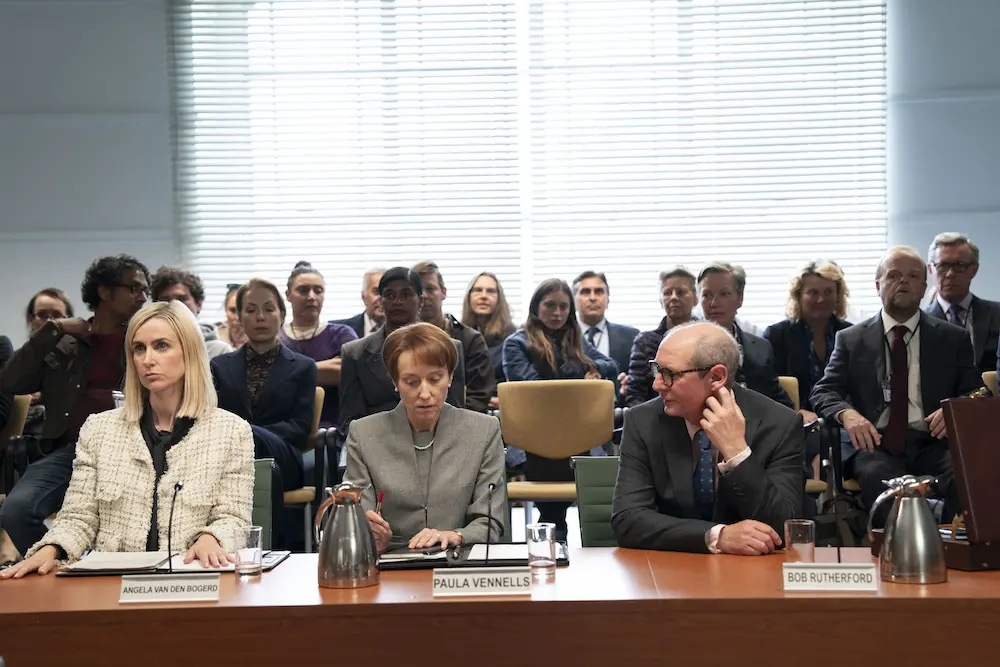ITV’s AI initiative sparks backlash from screenwriters
ITV, a leading public service broadcaster, has recently stirred controversy with its new hiring strategy aimed at embracing AI-driven innovation. An online job advertisement for a “head of generative AI innovation” went viral, drawing widespread criticism from the television writing community and beyond.
The role and its implications
The job listing details a position that will drive AI-based innovations in content creation for TV shows, films, and digital-first content across ITV Studios and ITVX. Specific tasks include AI-generated ideation, character development, and enhanced production graphics. The position, based in London, promises a yearly salary of up to £95,000 ($124,000), along with a potential annual bonus and a generous vacation allowance.
Television writers’ reactions
The proposal has not gone down well with television writers, who perceive it as a direct threat to their craft and livelihood. In a passionate response, the general secretary of Britain’s leading writers’ guild voiced strong opposition, stressing that creativity cannot be replaced by technology. Writers argue that original stories and nuanced character portrayals simply cannot be generated by an algorithm.
“The idea of bringing in an AI expert to replace writers is shocking,” one guild member noted, highlighting the abundance of untapped talent already available. They stressed the importance of investing in these writers instead of pursuing technological gimmicks.
Industry voices speak out
Prominent screenwriters have also weighed in on the debate, offering their perspectives on why this move by ITV is troubling. A well-known comedy series creator described the news as “incredibly depressing,” pointing out the ethical concerns around AI-generated content. They emphasized that great storytelling is about the individual’s voice, tone, and personal experience, aspects AI cannot replicate.
Another celebrated writer spoke on the irreplaceability of human creativity, suggesting that the authenticity and emotional depth found in shows like ‘Mr Bates Vs The Post Office’ and long-running soaps like ‘Coronation Street’ stem from lived experiences. These stories have shaped and reflected societal changes, a task far too complex for artificial intelligence.
Ethical and creative concerns
From an ethical standpoint, concerns arise about intellectual property rights and the originality of AI-generated content. The very essence of storytelling involves human creativity, a deep understanding of cultural nuances, and empathy—all attributes artificial intelligence lacks. Writers argue that while AI can serve as a tool to aid content creation, it should not replace the very individuals who breathe life into stories.
Furthermore, the backlash illustrates a broader anxiety within creative industries about the rise of AI. There is a growing fear that such technology could lead to a dehumanization of arts and culture, stripping away the richness and diversity that human creators bring.
The economic perspective
Economically, the decision to invest in AI rather than human talent can be seen as a short-term cost-cutting measure that may have long-term repercussions. Talented writers argue that any budget allocated for AI could be more effectively used to nurture and develop emerging talent, ensuring a continuous stream of original and compelling content.
Leading voices in the industry emphasize that great content results in sustained audience engagement and loyalty. Investing in talented individuals who understand the pulse of the audience can deliver a higher return on investment compared to the perceived benefits of AI.
Moving forward
As ITV faces growing criticism, the network may need to reconsider its approach to integrating AI in content creation. Stakeholders from across the industry call for a balanced strategy that leverages technology as a tool to enhance, not replace, human creativity.
A collaborative approach, where tech experts work alongside writers, may offer a middle ground. This partnership could focus on using AI to streamline production processes, while still relying on human ingenuity for core storytelling elements.
Final thoughts
The debate surrounding ITV’s AI initiative raises significant questions about the future of content creation. As industries evolve, striking a balance between technological innovation and human creativity will be crucial. Writers, who have long been at the heart of impactful storytelling, urge a return to investing in talent rather than relying solely on technology.
Stay tuned for more updates on this evolving story, and don’t forget to share your thoughts on social media as we navigate the intersection of AI and creativity together.

 Italian
Italian







